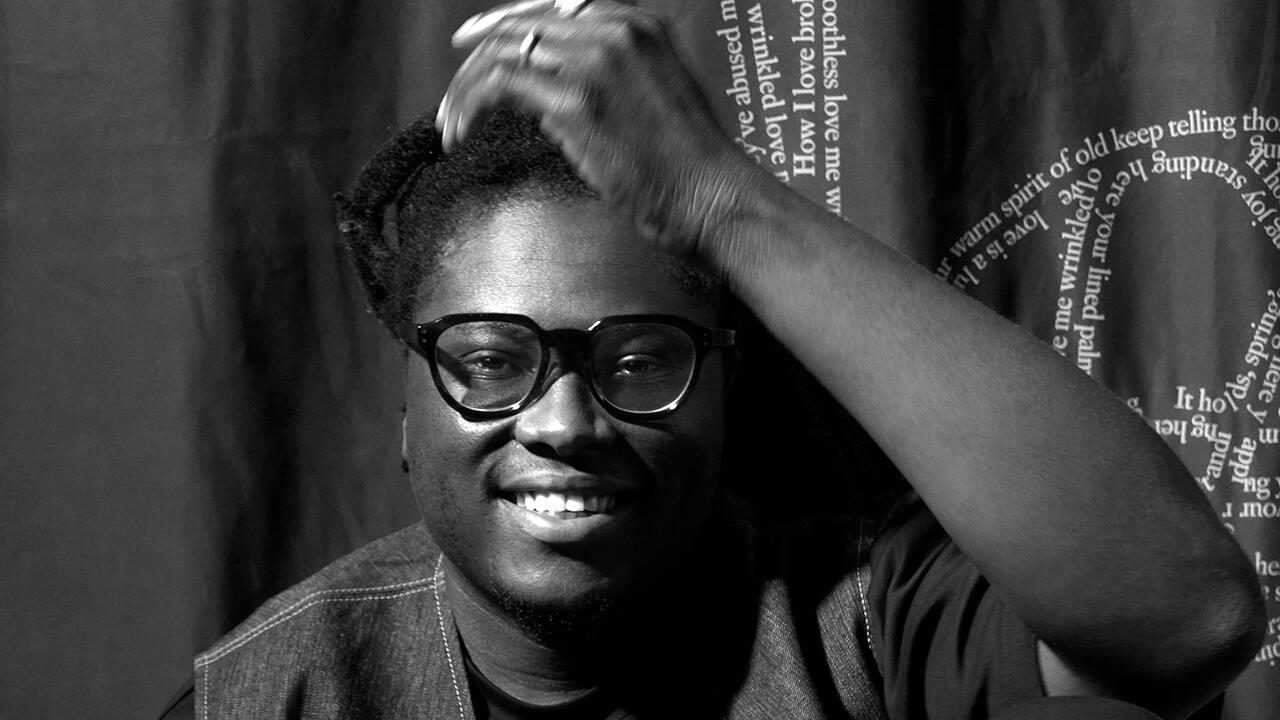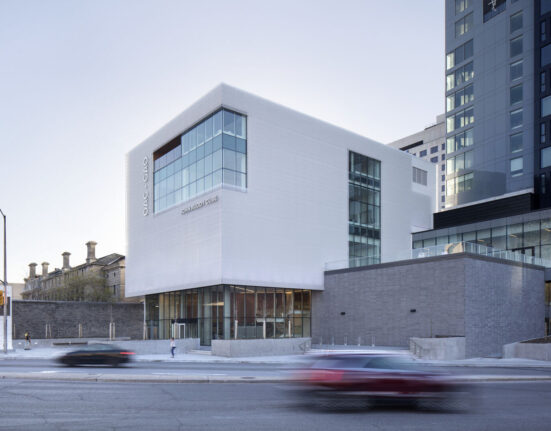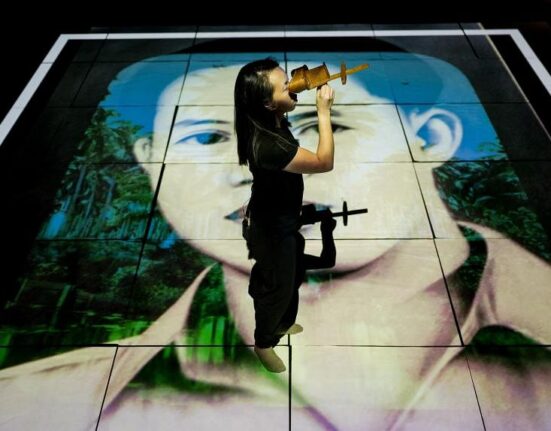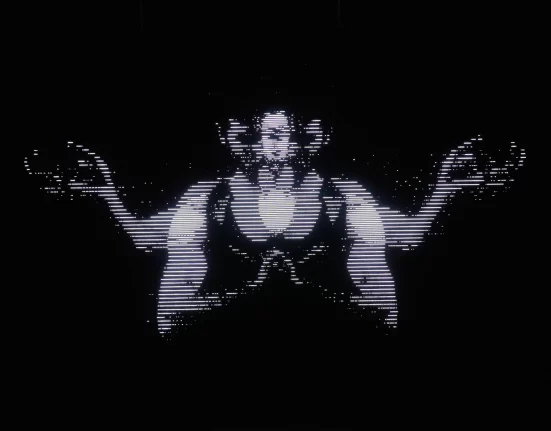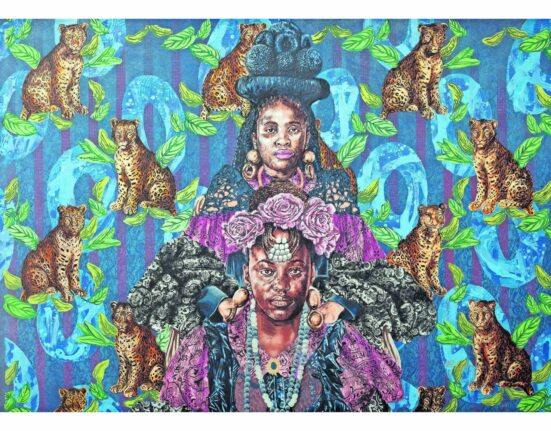Julianknxx, a visual artist and poet based in London, grounds his creative practice in poetry, which serves as the bedrock for his lyrical film works. These cinematic narratives, sometimes accompanied by live performances, often reveal lesser-explored stories of the African diaspora. In 2021, Julianknxx explored his early childhood in Sierra Leone in In Praise of Still Boys, a visual poem on the complexities of transatlantic identities. That same year, he initiated the ‘Black Corporeal’ series, addressing the metaphysics of breathing and the challenges faced by communities of colour in the built environment.
While his influences range from Édouard Glissant to Christina Sharpe, intertwined with the refined visual storytelling of Barry Jenkins, Julianknxx‘s artistic expression remains unique in its emotive force, tightly bound with the contributions of numerous collaborators in music and the performing arts.
2023 marks a major milestone, with the opening of his first solo institutional exhibition, ‘Chorus in Rememory of Flight’ (2023), at The Curve, Barbican, running until February 2024.
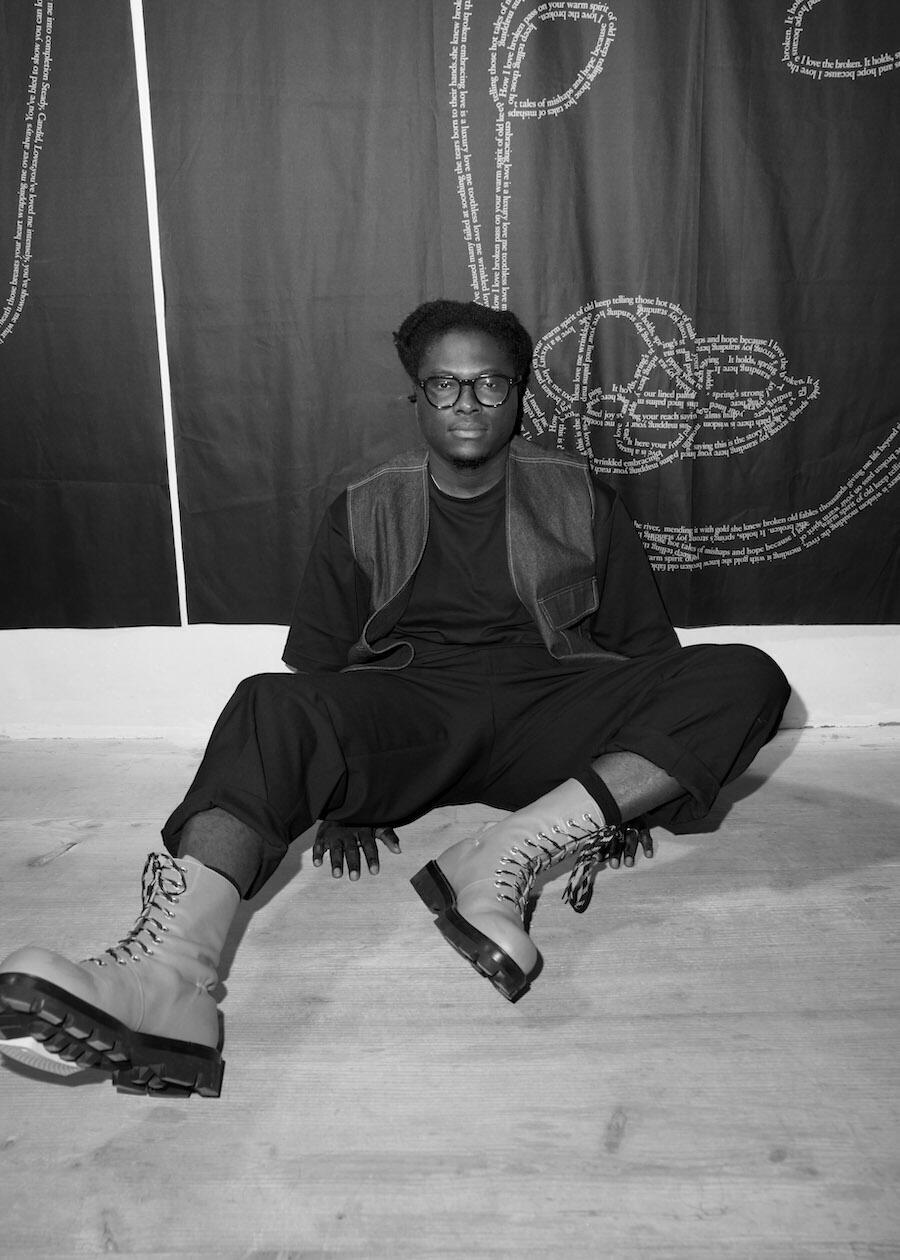
Angel Lambo While some might find this view controversial, I’ve observed a common thread in the art produced by Black and African diasporic artists. Often, when addressing Blackness, their work tends to emphasize trauma as a shared experience across the diaspora. To me, what sets your work apart is the connection you’ve established among the diaspora in Western Europe, highlighting themes of joy and beauty in a way that is not just figurative. Was this a deliberate choice of yours?
Julianknxx Sometimes, when you go to a gallery to watch a film concerning Black discourse, it’s so focused on the trauma that it forgets to present the individuals in the film in the best light. The beauty that you mention comes from responsibility – because I tend to work with many collaborators I feel like I am responsible to and for the people who have offered me their time. I hope that when they watch themselves in my films they’re not thinking I misrepresented them in any way.
AL I’ve been a long-time follower of your work, initially captivated by your exquisite film Roots for a Crown [2019], which delved into the aesthetics of locked hair. I found the flow of images, poetry and sound design remarkable. The coherent relationship between these elements was particularly striking given the large number of people working on the project. Could you talk about your collaborative process?
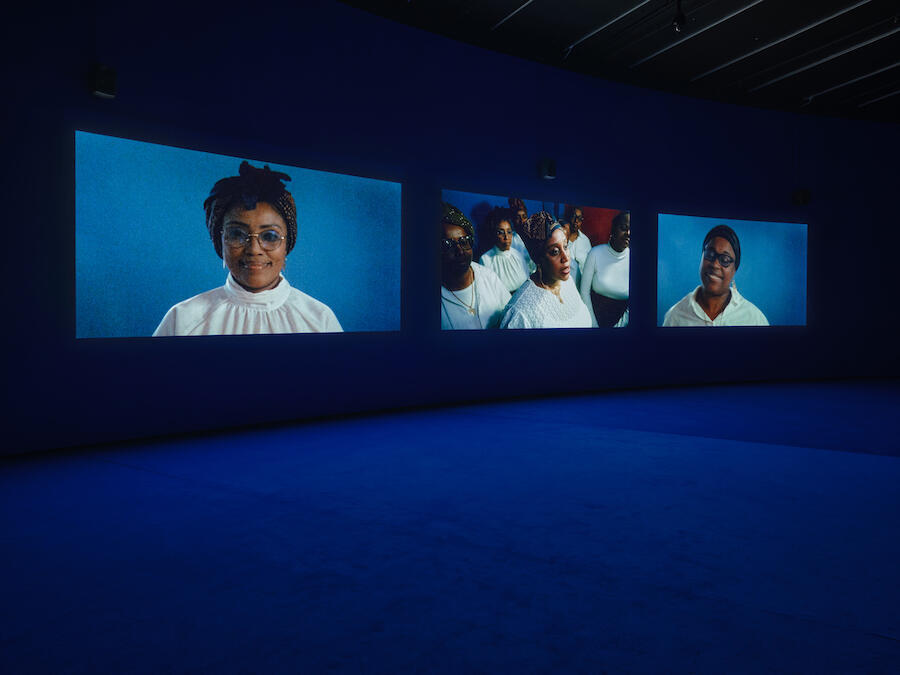
JK I often don’t know what the end product will look like – neither do my collaborators. It’s about mutual trust, with me relying on their ability to embody my vision without prior rehearsal and, simultaneously, them trusting my guidance and encouragement to ‘lean into the chaos’.
For my film currently showing at the Barbican, Chorus in Rememory of Flight, I simply went across Europe and asked people from the diaspora to tell me the story of their cities. This could have taken the form of a dance, a poem or a song, or we could just have tea and talk. It’s only later that I try to make sense of the work.
AL The concept of collaboration, particularly in the choir, played a significant role in the Barbican show. How did the notion of ‘the chorus’ impact the creative process of the film?
JK In a choir, you have different people coming together to sing different parts to create a beautiful harmony. I’ve tried to imitate that in my work. Music is a memory holder. In African practices, songs play a big part in gatherings, rituals and storytelling, serving as conduits for ideas and concepts. The musical refrain in Chorus in Rememory of Flight is sung by different voices across countries, weaving connections between people. The song becomes a wayfinder, emphasizing that Europe is not the destination; rather, one’s arrival there. It marks the beginning of a journey that transcends geographical boundaries.
AL I feel your work often speaks to people with a recent history of migration, yet it also seems to resonate universally across almost all audiences. How do you account for its reach?
JK I don’t think audiences necessarily have to be connected to a lineage that goes back to Africa to get my work, or this film in particular. The crux lies in the narrative, which extends beyond cultural bounds. It unfolds as a global story, holding our collective human experience. If you lean into the human side of my work – the human connections – you’ll find that my stories aren’t confined to Blackness.
AL If your work extends beyond narratives of Blackness, how does that play out in your recent live performance at St James’s Church? It was a commemoration to Quobna Ottobah Cugoano, an 18th-century abolitionist trafficked from Ghana to the Caribbean at the age of 13, and thereafter to London.
JK While the exact dates of Cugoano’s birth and death are unknown, the only fact we do know is that he was baptized in St James’s Church. As a black man in that era he would have faced severe limitations on expressing himself in a place like a church. So, to celebrate his life we shouted, sang, danced and cried, as an act of historical restitution. The performance was about the deliberate act of remembrance, of showing that even if all your life’s details have been forgotten, you can still be honoured. That’s the real message of the work.
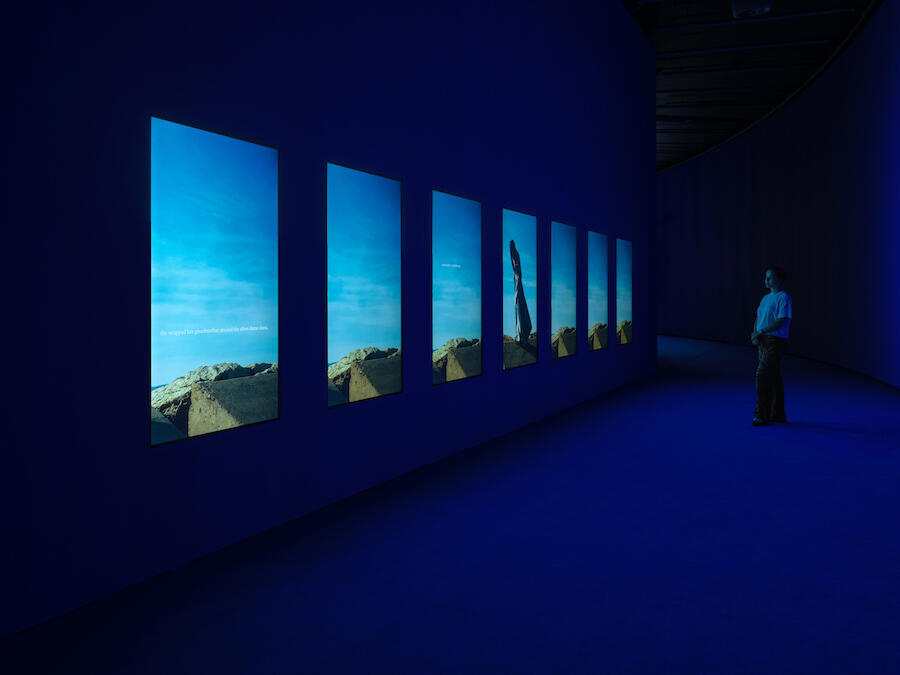
AL And what do you think your lasting impact, or memory, will be on the art world or creative communities?
JK I’m not sure. The art world wasn’t made for me. It’s that responsibility to the lineage of the histories that brought me here. I’m grateful for this year and the way the work is being received, but the art world is not the reason why I make the work.
AL Do you have any plans for next year?
JK Chorus in Rememory of Flight is set to tour various cities I worked in. I’m spending most of 2024 revisiting cities like Antwerp, Amsterdam and Lisbon, and putting on performances there because it’s crucial for the work to return to its origins and engage people in a live way.
Apart from that, I will be finding ways to reflect on the current chaos in the world, and finding the words to make sense of it all, particularly the complexities of the occupation in Palestine, the war in Sudan, the conflict in Ukraine and other struggles around the world. It’s a deep task to find a language that effectively resonates with the present moment.
Julianknxx’s ‘Chorus in Rememory of Flight’ is at The Curve, Barbican Centre until 11 February 2024
Main image: Julianknxx, ‘Chorus in Rememory of Flight’, 2023, installation view. Courtesy: Barbican Art Gallery; photograph: Eva Herzog

